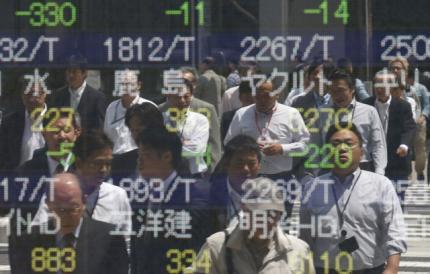
Bareksa.com - Asian stocks rose in early trade on Thursday, riding on the optimism of Wall Street after the U.S. Federal Reserve gave a positive assessment of the world's largest economy and committed to retaining its accommodative monetary policy.
MSCI's broadest index of Asia-Pacific shares outside Japan gained 0.4 percent.
Tokyo's Nikkei climbed 0.4 percent, with a stronger yen tempering gains.
On Wall Street, the S&P 500 ended at a record high on Wednesday after the Fed hinted at a slightly faster pace of interest-rate increases starting next year but suggested rates in the long run would be lower than it had indicated previously.
The Fed's policy statement changed little from the one issued after its last meeting in April, repeating that interest rates would remain near zero "for a considerable time" after the bond buying ends.
The central bank said unemployment remained "elevated" despite recent job growth, and noted that its preferred measure of inflation was still running below target.
World markets have been buffeted in recent months amid a slowdown in China and a largely uneven global recovery. Conflicts in Ukraine and Iraq have further undermined sentiment.
The Fed's accommodative policy stance is seen as one of the few positives, as rising consumption in the U.S. is expected to help underpin some of Asia's big export-driven economies.
The dollar struggled against its peers, hurt as U.S. Treasury yields fell sharply on the Fed's long-term rates projection and as policymakers showed little discomfort over recent signs of a pick up in consumer prices.
"The main takeaway from the meeting is that the Federal Reserve is not the Bank of England," Marc Chandler, global head of currency strategy at Brown Brothers Harriman, wrote in a note to clients.
"Hawkish comments by top BOE officials--not just Governor Carney--are encouraging investors to bring forward the beginning of a normalization of monetary policy and a tightening cycle, no matter how gradual. In contrast, the Federal Reserve stuck to its course, despite the recent pick up in inflation and the improvement in the labor market."
The dollar index, a gauge of the greenback's strength against a basket of key currencies, was down 0.2 percent.
The dollar traded little changed at 101.92 yen after shedding 0.2 percent on Wednesday.
Sterling was steady at $1.6991. The pound rose past $1.70 for the first time since mid-2009 early this week after BoE chief Marc Carney warned markets may be mistaken if they think rates will not rise in 2014. It has since lost a bit of steam after BoE minutes left unclear the timing of the next rate hike.
The euro dipped 0.1 percent to $1.3589, taking a breather following the previous session's 0.35 percent rise.
In commodities, U.S. crude edged up 0.2 percent to $106.22 a barrel. Persistent worries over oil exports from war-torn Iraq limited losses suffered the previous session after data showed a sharp decline in crude stocks. (Source : Reuters)